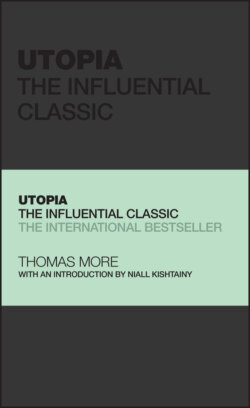Читать книгу Utopia - Sir Thomas More, Thomas More, William Roper - Страница 15
UNCOVERING MORE THE MAN
ОглавлениеIn his later career, More was caught up in the turmoil of Reformation politics. His biographical persona has often been moulded by historians according to their religious and political allegiances, making it hard to uncover the ‘real’ More. The earliest accounts of his life from which we gain many biographical details were written by people close to him. Many were hagiographies aimed at building the case for More's sainthood. They present More as witty, learned, and industrious, a morally spotless man who bravely died for the Catholic Church.
More lost some of his repute in Protestant England. The author of the first English translation of Utopia, published after the Reformation, included a rebuke in his introduction, saying that More was a man of ‘incomparable wit’ and ‘profound knowledge’ but ‘obstinate’ in matters of religion ‘even to the very death’. More was gradually absolved of his refusal to conform. His anti‐clericalism and desire for a purer church were used to rehabilitate him as a Protestant reformer in spirit if not in name.
Twentieth‐century historians led by Geoffrey Elton and Richard Marius revised these portrayals of a righteous More to reveal a complex, imperfect figure. One line of attack has been on More's involvement in the detection and punishment of Lutheran heretics when in Henry VIII's service. More's admirers have downplayed his role in these campaigns, but revisionist historians have seized on it as evidence of More being a religious fanatic – drawing a contrast with the earlier humanist More who wrote Utopia. One highly critical account by Jasper Ridley claims that if More had lived in the twentieth century he would have been the kind of zealot who in the service of an ideology justifies the death of millions.
Revisionist historians have also returned to the question of why More put aside his apparent aspirations to become a monk for family and official life. Some have argued that he chose to marry out of sheer sexual frustration, and that his decision tormented him for the rest of his life. He would only achieve a resolution of sorts at the end of his days when imprisoned in his cell, living like a monk, praying and writing spiritual tracts. More, who wore a hair shirt under his clothes and whipped himself before the altar, under this less favourable view was a brooding, conflicted man, much less attractive than the earlier picture of him. A version of this darker image appears in the acclaimed 2009 novel Wolf Hall by Hilary Mantel, which caused controversy for its less than flattering depiction of More.
These critical views have been a useful corrective to More hagiography, and help to explore the tensions at the heart of More's life and work. Both approaches often go too far though. Balanced assessments try to avoid seeing More as saint or villain and concede that much of the internal motivation for his actions cannot be known.
Despite the scholarly controversies, the popular heroic image of More is still very much alive, most famously in the play by Robert Bolt, A Man For All Seasons, which premiered in London in 1960 and was later made into two films. Here More becomes a sort of liberal exemplar, bravely standing up for his conscience in the face of tyranny. Speaking of the religious belief that has brought him into conflict with the king, Bolt's More says: ‘What matters to me is not whether it's true or not, but that I believe it to be true, or rather not that I believe it, but that I believe it.’ This is not the utterance of a devout Catholic of the early sixteenth century. In the modern secular world it is how we understand More and how we make him into an icon for our own times.
